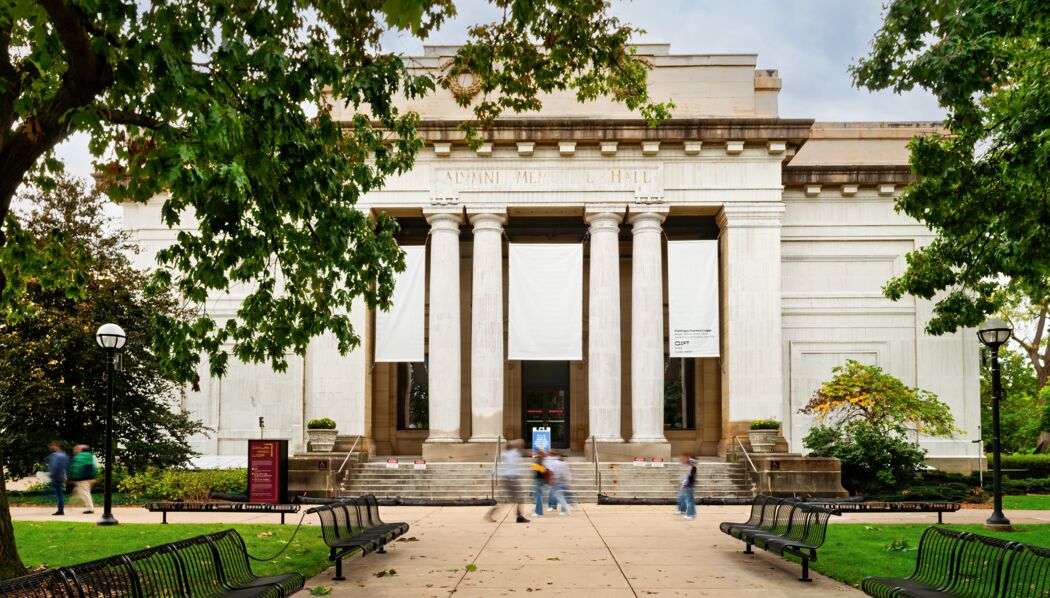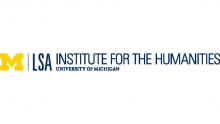
The centerpiece of the You’re Welcome exhibition, Cannupa Hanska Luger’s GIFT, an experimental, time-based, commissioned work, responds to and challenges the University of Michigan’s origin story and the stewardship of the land it occupies. In September 2023, Luger, a multidisciplinary artist and enrolled member of the Three Affiliated Tribes of Fort Berthold (Mandan, Hidatsa, Arikara) and Lakota, painted the word “GIFT” in white porcelain clay slip on the columns of Alumni Memorial Hall, a neoclassical war memorial erected in 1910 that now houses the University of Michigan Museum of Art (UMMA). His point of departure is the 1817 Treaty of Fort Meigs, in which Ottawa, Chippewa, and Potawatomi tribes “gifted” land to the University that was then sold to found its endowments.
Over several days, Luger and a team of collaborators continued to paint around the letters, covering the entire historic facade with a layer of white clay. Eventually rain, wind, sun, and snow will interact with the clay slip remnants and return to the land. Weather and time thus become visible agents of slow correction to the perception of permanence embodied in the building’s architecture. For Luger, the project conveys that “Whiteness is a concept and though it has created many catastrophic systemic issues and problems, it is essentially a function of perception. GIFT asks people to perceive whiteness differently—it is thin, temporary, and it is slipping away.” GIFT thus encourages us to understand the histories and stories of the lands we occupy, and the structures of remembrance found on them, in more nuanced ways.
Gift Timelapse
Watch as Luger paints GIFT on Alumni Memorial Hall and subsequently covers the facade with a layer of white clay. This video will update over time to capture the work in various weather conditions and seasons until it is eventually completely washed away.
SUPPORT
Lead support for Cannupa Hanska Luger: You’re Welcome is provided by Teiger Foundation, the U-M Office of the Provost, the U-M Office of the President, Erica Gervais Pappendick and Ted Pappendick, the U-M Marsal Family School of Education, the U-M Institute for the Humanities, Michigan Humanities, and the U-M Arts Initiative. Additional generous support is provided by Melissa Kaish and Jonathan Dorfman.


